Google Pixel 9 vs. Pixel 9 Pro — here's what's different
Two Pixel 9 Pro models make a comparison with the Pixel 9 more complex than ever

A Google Pixel 9 vs. Pixel 9 Pro comparison isn't like past face-offs between Google's standard and Pro phones. In previous years, Google's entry level and Pro versions had different sizes for both screens and batteries; the Pro phone also featured a dedicated telephoto lens. But otherwise, you wouldn't find many other differences between the two.
Things have changed with the launch of the Pixel 9. This time around, there are two Pro versions of Google's latest flagship, as a Pixel 9 Pro XL joins the Pixel 9 Pro. The XL gets the larger screen and bigger battery, while the regular Pro shares those features in common with the Pixel 9 — plus the additional telephoto lens and other upgrades.
Sounds confusing, right? Well, our Google Pixel 9 vs Pixel 9 Pro vs Pixel 9 Pro XL comparison can help keep you straight on the ins and outs of each of the three new models. But in this comparison, we're looking strictly at the standard Pixel 9 and Pixel 9 Pro — now that they share display and battery specs, are there any significant differences between the two models?
Be sure to read our Pixel 9 review and Pixel 9 Pro review for detailed impressions of each model. That includes the results of our testing, letting you compare things like performance, battery life and camera quality. But for now, here's a closer look at the surprisingly similar Pixel 9 vs. Pixel 9 Pro.
Google Pixel 9 vs. Pixel 9 Pro: Specs
| Row 0 - Cell 0 | Google Pixel 9 | Google Pixel 9 Pro |
| Screen size | 6.3-inch Actua | 6.3-inch Super Actua |
| Display resolution | 1080 x 2424 | 1280 x 2856 |
| CPU | Tensor G4 | Tensor G4 |
| RAM | 12GB | 16GB |
| Storage | 128GB, 256GB | 128GB, 256GB, 512GB, 1TB |
| Rear cameras | 50MP (f/1.68) main, 48MP (f/1.7) ultrawide | 50MP (f/1.68) main, 48MP (f/1.7) ultrawide, 48MP (f/2.8) telephoto (5x zoom) |
| Front camera | 10.5MP (f/2.2) | 42MP (f/2.2) |
| Video recording | up to 4K 24/30/60 FPS | up to 8K 30 FPS |
| Battery size | 4,700 mAh | 4,700 mAh |
| Battery life (hours:minutes) | 13:18 | 13:37 |
| Wired charging speed | Up to 45W | Up to 45W |
| Wireless charging speed | Up to 15W | Up to 21W |
| Colors | Obsidian, Porcelain, Wintergreen, Peony | Obsidian, Porcelain, Hazel, Rose Quartz |
| Size | 6 x 2.8 x 0.3-inches | 6 x 2.8 x 0.3-inches |
| Weight | 7 oz | 7 oz |
Google Pixel 9 vs. Pixel 9 Pro: Price
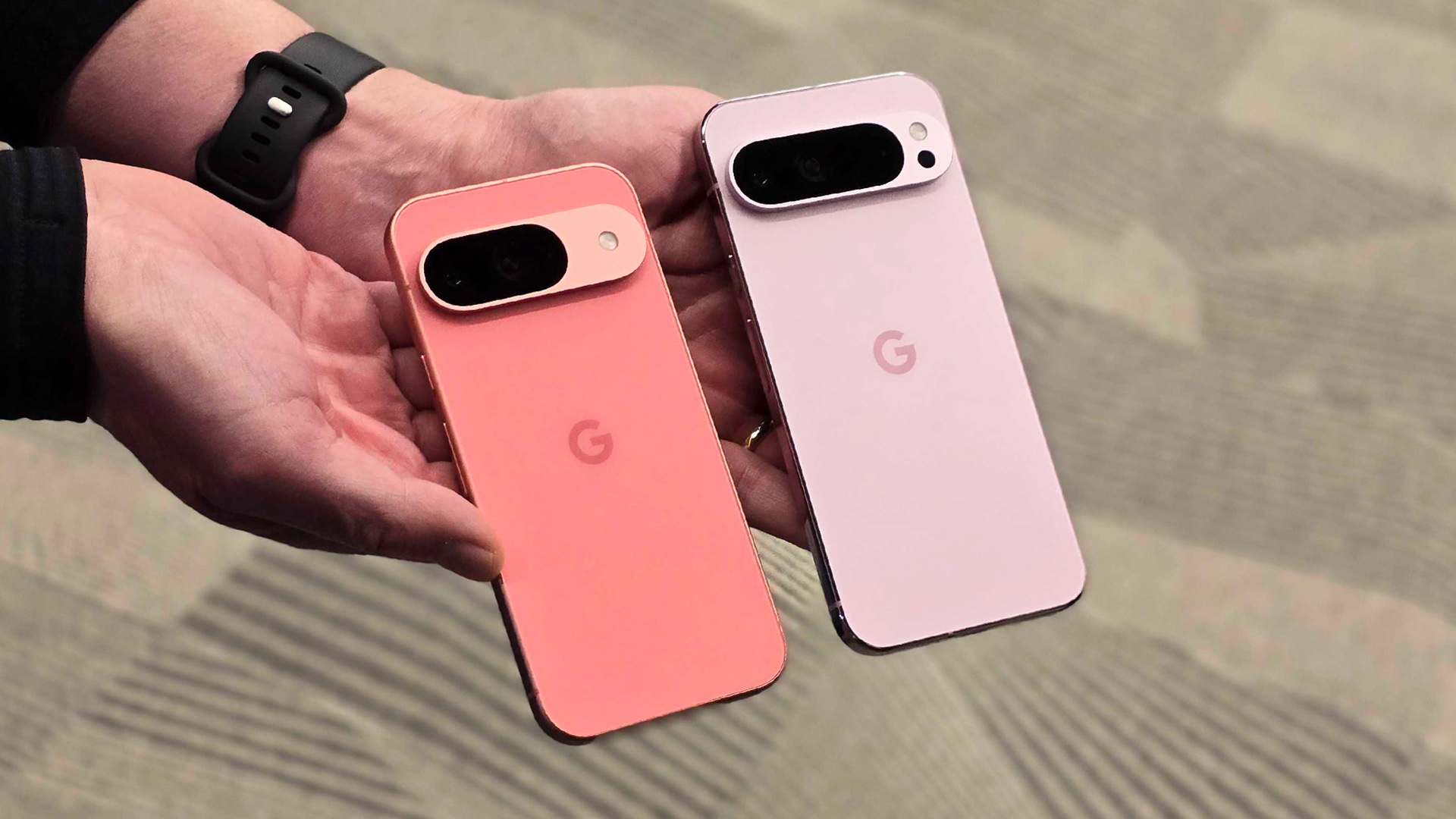
Since the Pixel 9 and Pixel 9 Pro look a lot alike — more on that in a moment — one of the biggest differences you'll notice is the price. The Pixel 9 Pro costs more than the Pixel 9, though with a price hike to the latter device, there's less of a gap than there has been in recent years.
Specifically, the Pixel 9 now starts at $799 for a 128GB model, which is $100 more than Google charged for the Pixel 8. The Pixel 9 Pro costs $999, which is the same price as the Pixel 8 Pro, even though the 9's display is much smaller.
You have more capacity options with the Pixel 9 Pro, which also comes in 256GB and 512GB, with a 1TB version available if you pick the Obsidian colorway. The only other Pixel 9 capacity beyond the 128GB in the base model is 256GB.
Google Pixel 9 vs. Pixel 9 Pro: Design and displays
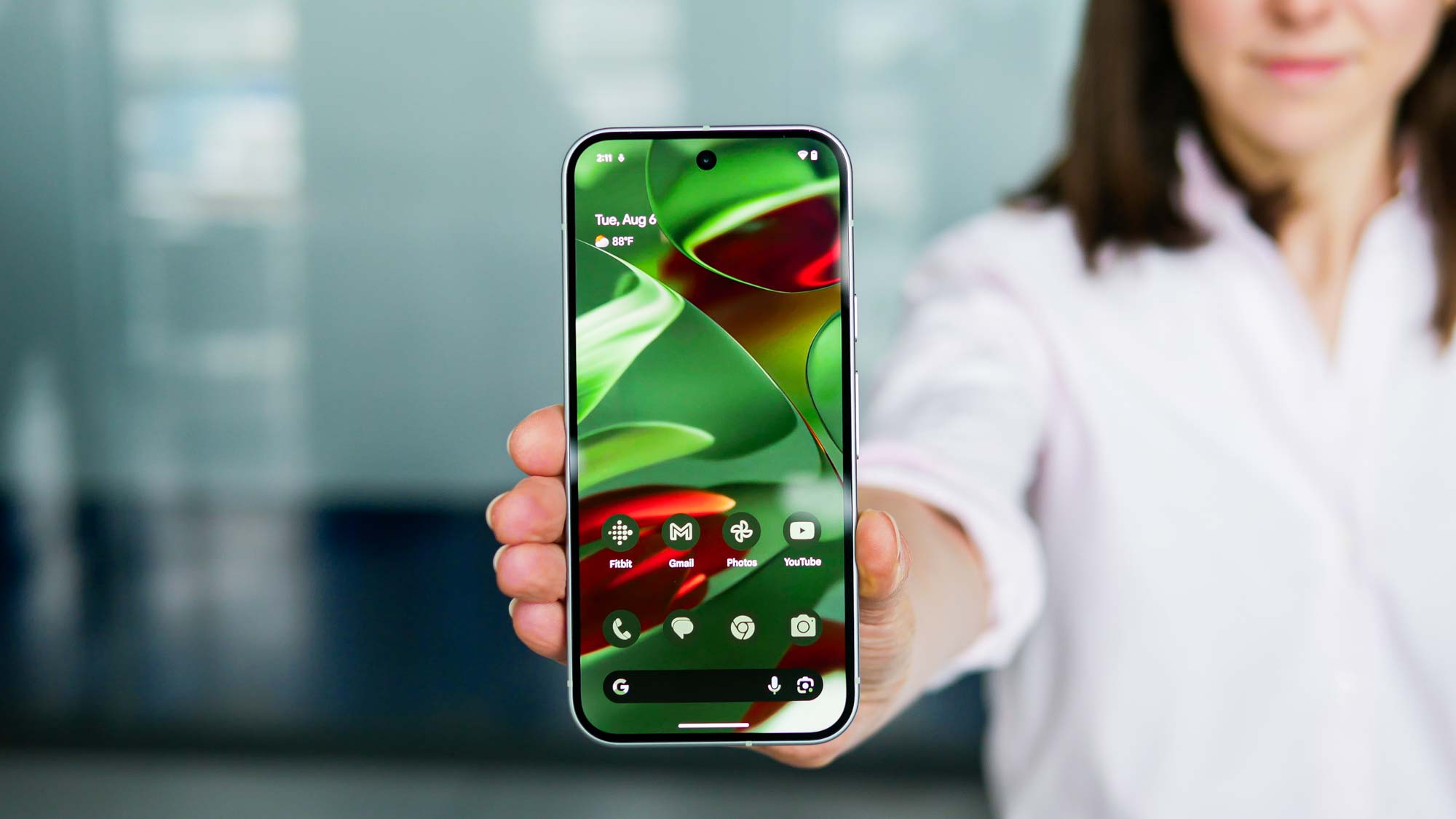
Unlike previous years, the Pixel 9 and Pixel 9 Pro now share a screen size — 6.3 inches to be specific. If you want a larger display, you'll have to pay up for either Pixel 9 Pro XL or the Pixel 9 Pro Fold.
But while the phones may now offer the same size screen, that doesn't mean the displays are identical. The Pixel 9 Pro uses a Super Actua display that has sharper resolution, a faster refresh rate and better brightness than what you see on the Pixel 9.
In terms of resolution, the Pixel 9 Pro uses a 2856 x 1280 display compared to 2424 x 1080 for the Pixel 9. That means more pixels per inch on the Pro for a sharper picture overall. The Pixel 9 Pro's refresh rate can vary between 1Hz and 120Hz depending on the on-screen action, while the adaptive refresh rate on the Pixel 9 is limited to a range of 60Hz to 120Hz.
Similarly, the Pixel 9 Pro's maximum brightness of 3,000 nits means it will be able to outshine the Pixel 9. Still, the Pixel 9's 2,700-nit max brightness is pretty high in its own right, so you won't have an issue seeing either phone in bright sunlight, at least on paper.
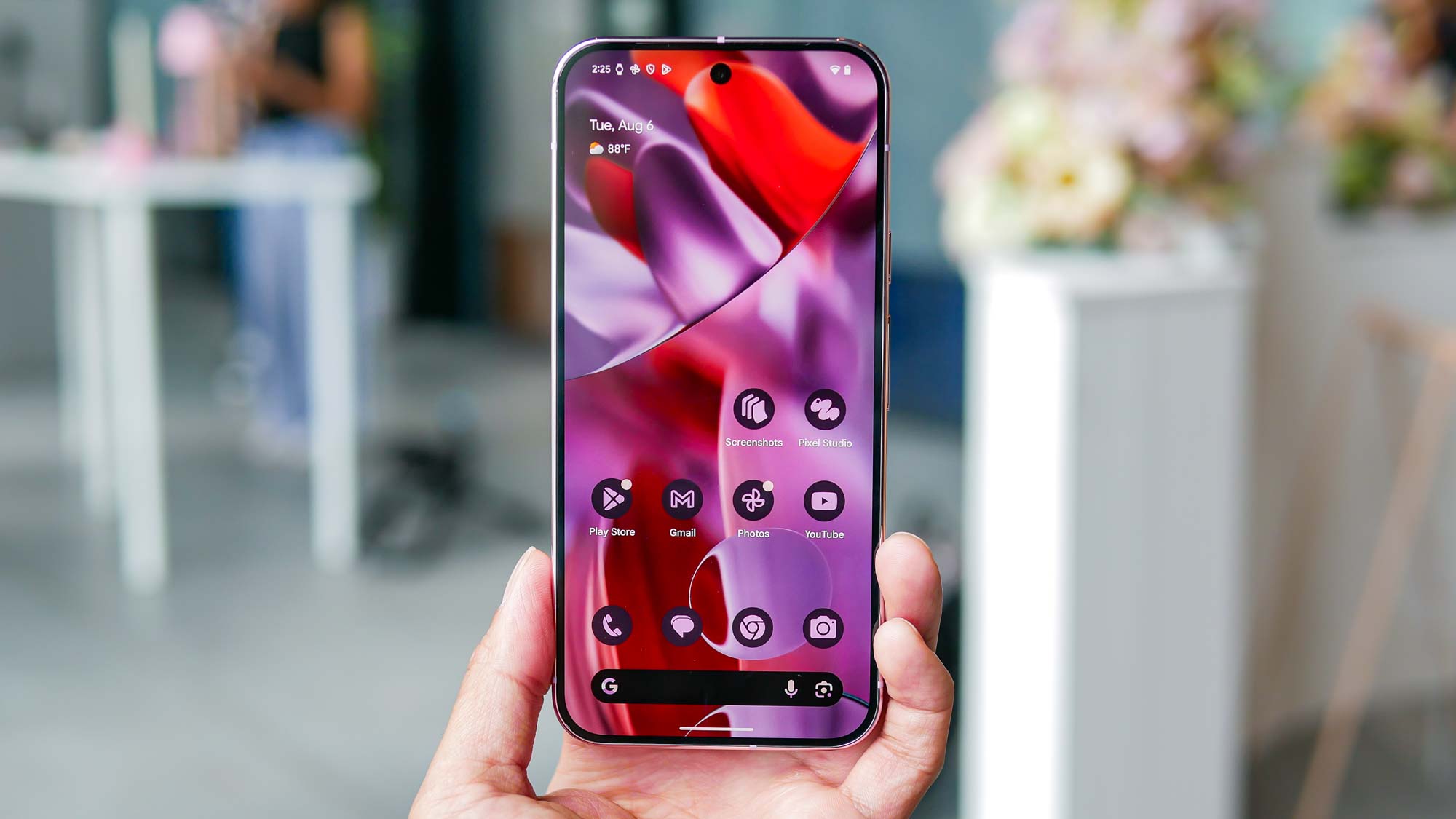
As with the displays, the two Pixels share a look, with both measuring 6 x 2.8 x 0.3 inches and weighing in at 7 ounces. Each one has the modified camera bar that now ends with rounded corners instead of stretching across the length of the display.
Again, go beyond the surface to find the differences in design. The Pixel 9 Pro features a matte glass finish with a polished metal frame, while the Pixel 9's back uses polished glass with a satin metal finish on its frame and camera bar.
You can get the Pixel 9 in Obsidian, Porcelain, Wintergreen or Peony. The Obsidian and Porcelain colors are part of the Pixel 9 Pro's color offerings, but you also can choose from Hazel or Rose Quartz.
Google Pixel 9 vs. Pixel 9 Pro: Cameras
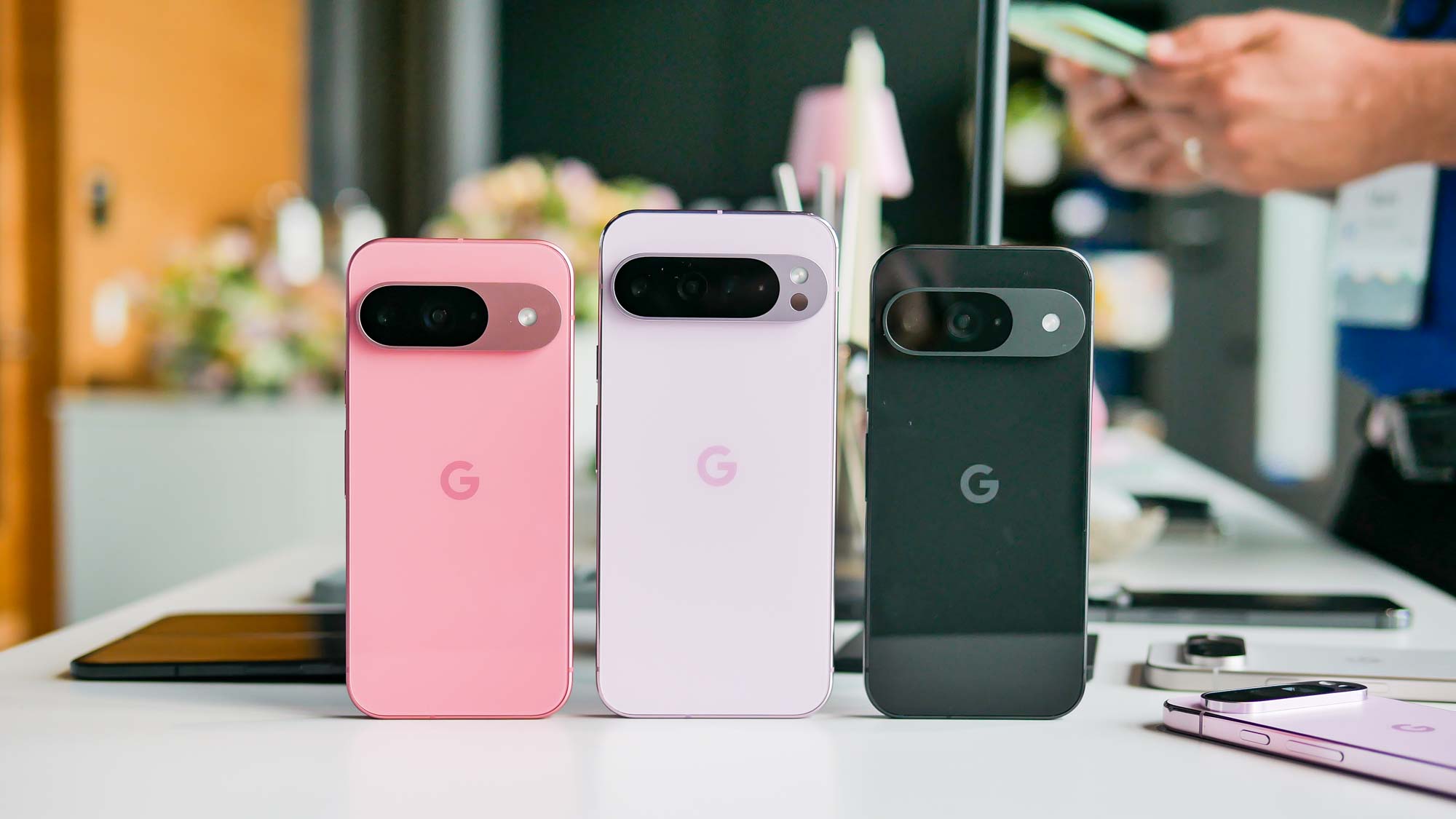
One key standard Pixel vs. Pixel Pro difference remains for the Pixel 9 vs. Pixel 9 Pro showdown — the Pro still offers an extra rear camera in the form of a telephoto lens. The Pixel 9 still makes do with just a main camera and ultrawide shooter.
Otherwise, the rear camera specs are the same regardless of what phone you're considering. A 50MP wide camera serves as the main lens, and on the Pixel 9, you can simulate a 2x optical zoom by cropping in on a subject. There's a 48MP ultrawide lens, too, that now offers a Macro mode. To that mix, the Pixel 9 Pro features a 48MP telephoto lens capable of a 5x optical zoom. This gives the Pro model extra versatility, especially when it comes to astrophotography.
The telephoto camera on the Pixel 9 Pro also means that it can support a longer digital zoom when tapping into Google's Super Res Zoom capability that removes the noise that can appear in shots where you zoom in. You can get a 30x zoom on the Pixel 9 Pro compared to 8x on the standard Pixel.
The Pro models of Google's flagship phones continue to be the only ones capable of using Google's Video Boost feature, which enhances video you've captured with your Pixel.
Up front, the Pixel 9 Pro now features a 42MP selfie cam, which has much sharper resolution than the 10.5MP front camera on the Pixel 9. However, the Pixel 9 joins the Pro model in adding autofocus to its front camera.
Google Pixel 9 vs. Pixel 9 Pro: Performance and AI features
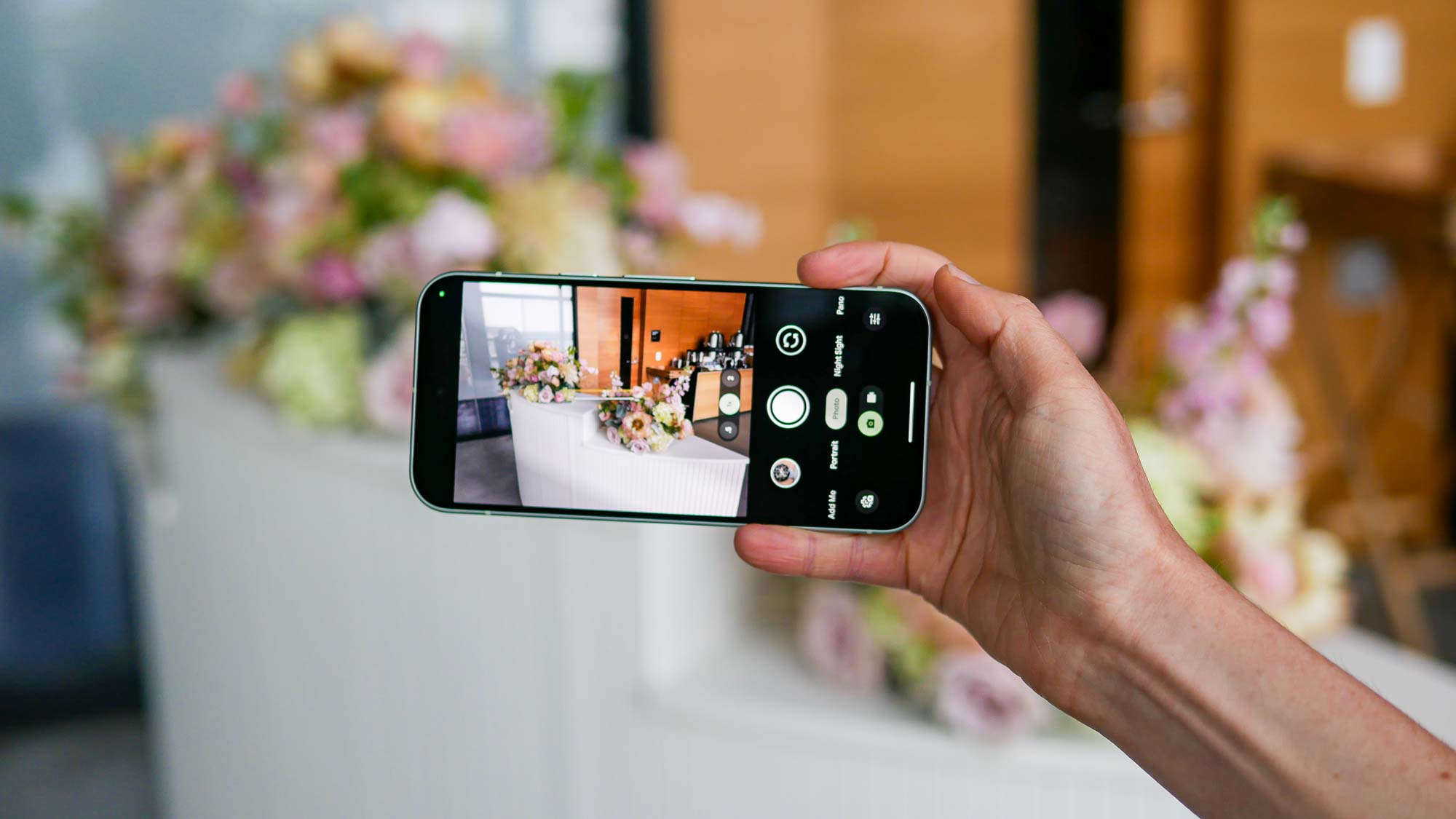
Google uses the same Tensor silicon in all of its Pixel 9 phones, so the same Tensor G4 that's in the Pixel 9 Pro also powers the Pixel 9. The Pro model comes with more RAM, though — 16GB compared to 12GB.
Still, those 12GB are enough memory for the Pixel 9 to offer the same AI-powered features as the Pixel 9 Pro. Pixel Screenshots, Call Notes, Add Me and Pixel Studio — you'll find these Pixel AI capabilities on either phone.
You get the built-in Gemini AI assistant on both the Pixel 9 and Pixel 9 Pro, too, for help with making appointments, brainstorming ideas and more. But the Pixel 9 Pro comes with a year-long subscription to Gemini Advanced for more complex tasks.
| Row 0 - Cell 0 | Pixel 9 | Pixel 9 Pro |
| Processor | Tensor G4 | Tensor G4 |
| Geekbench 6 (single/multicore | 1,758 / 4,594 | 1948 / 4794 |
| 3DMark Wild Life Unlimited (FPS) | 55.71 | 55.97 |
The Tensor chipsets have never been known for string raw performance, and that's reflected in the numbers produced by the Geekbench 6 benchmarking. However, no doubt due to the fact that the to share the same chipset, the Pixel 9 and and Pixel 9 Pro score pretty closely.
In fact there was only around 200 points difference on single and multi-core testing on Geekbench 6, with the 9 Pro coming out on top. Wild Life Unlimited graphics testing was even closer, with a difference of less than 0.2 frames per second. No doubt the 9 Pro's extra RAM helped make up some of the difference, though it's unlikely that most people will be able to distinguish the two apart.
Another special feature exclusive to the Pro model is its thermal sensor, which can quickly take the temperature of nearby objects, or even yourself if you think you're feeling under the weather. It even does a decent job of competing against a proper FLIR camera. The vanilla Pixel 9 doesn't have this capability.
Google Pixel 9 vs. Pixel 9 Pro: Battery life and charging
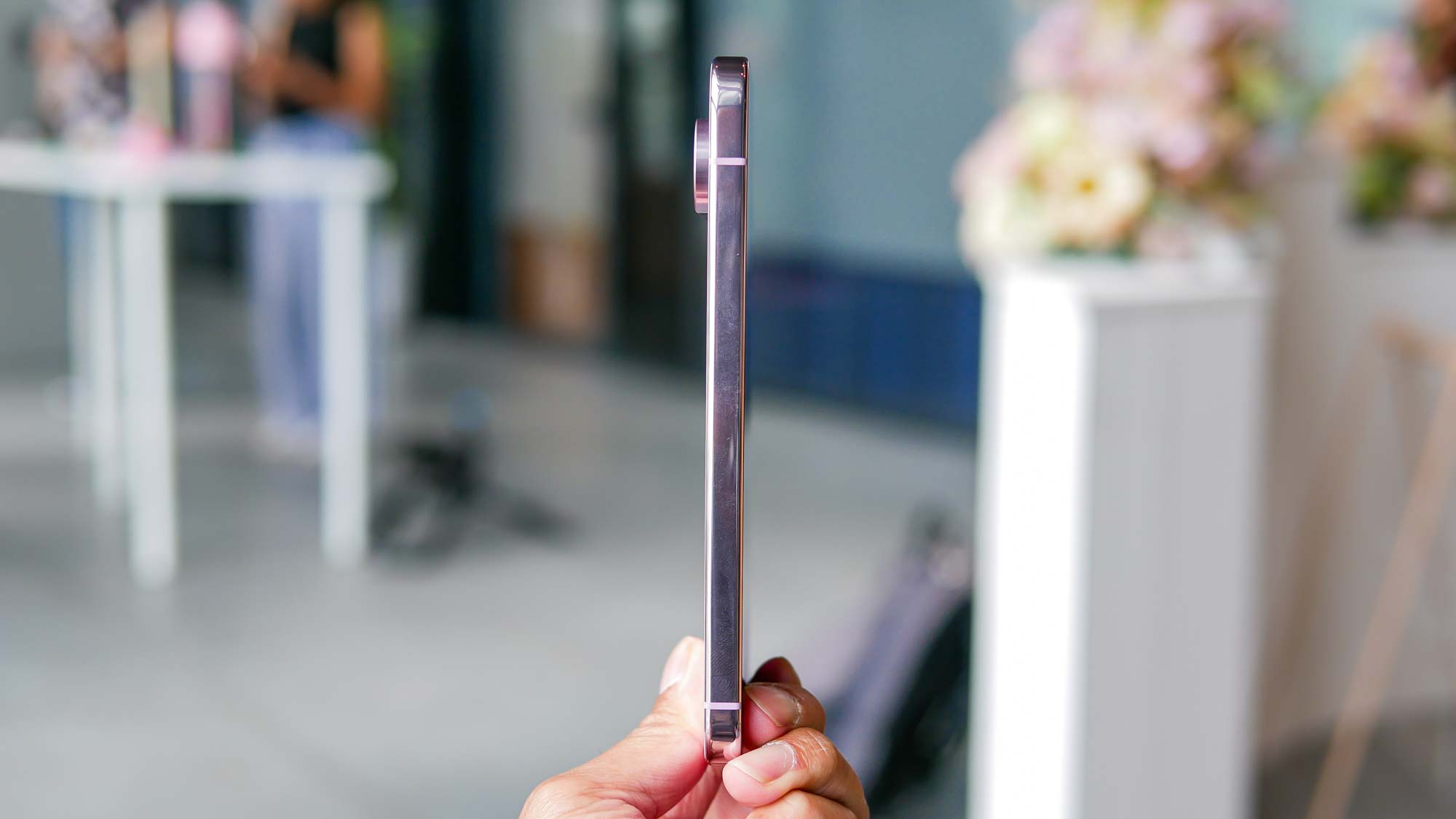
Because the Pixel 9 and Pixel 9 Pro are the same size, their batteries match, too. You'll find a 4,700 mAh power pack in either phone, which is an upgrade from the 4,575 mAh battery in the Pixel 8. If you want longer battery life, though, you should consider the Pixel 9 Pro XL, which now has a 5,060 mAh cell.
The Pixel 9 Pro managed to last slightly longer in our battery life testing, averaging out at 13 hours and 37 minutes — 19 minutes more than the Pixel 9. Which is quite the improvement from past Pixel phones, and it's the kind of battery life performance you may have to see to believe.
| Row 0 - Cell 0 | Battery size | Battery Life (Hrs:Mins) |
| Google Pixel 9 | 4,700 mAh | 13:18 (Adaptive) |
| Google Pixel 9 Pro | 4,700 mAh | 13:37 (Adaptive) |
Charging speeds are identical with both phones capable of 45W wired charging when you use the Google 45W USB-C charger that's sold separately. Google says the phones can get a 55% charge in 30 minutes with that accessory.
It's wireless charging where there's some difference between the Pixel 9 and Pixel 9 Pro. The standard phone offers 15W wireless charging, whereas the Pro can get up to 21W, though those speeds once again require the Pixel Charging Stand. On standard Qi-certified charges, you're going to see 12W speeds.
Google Pixel 9 vs. Pixel 9 Pro: Outlook
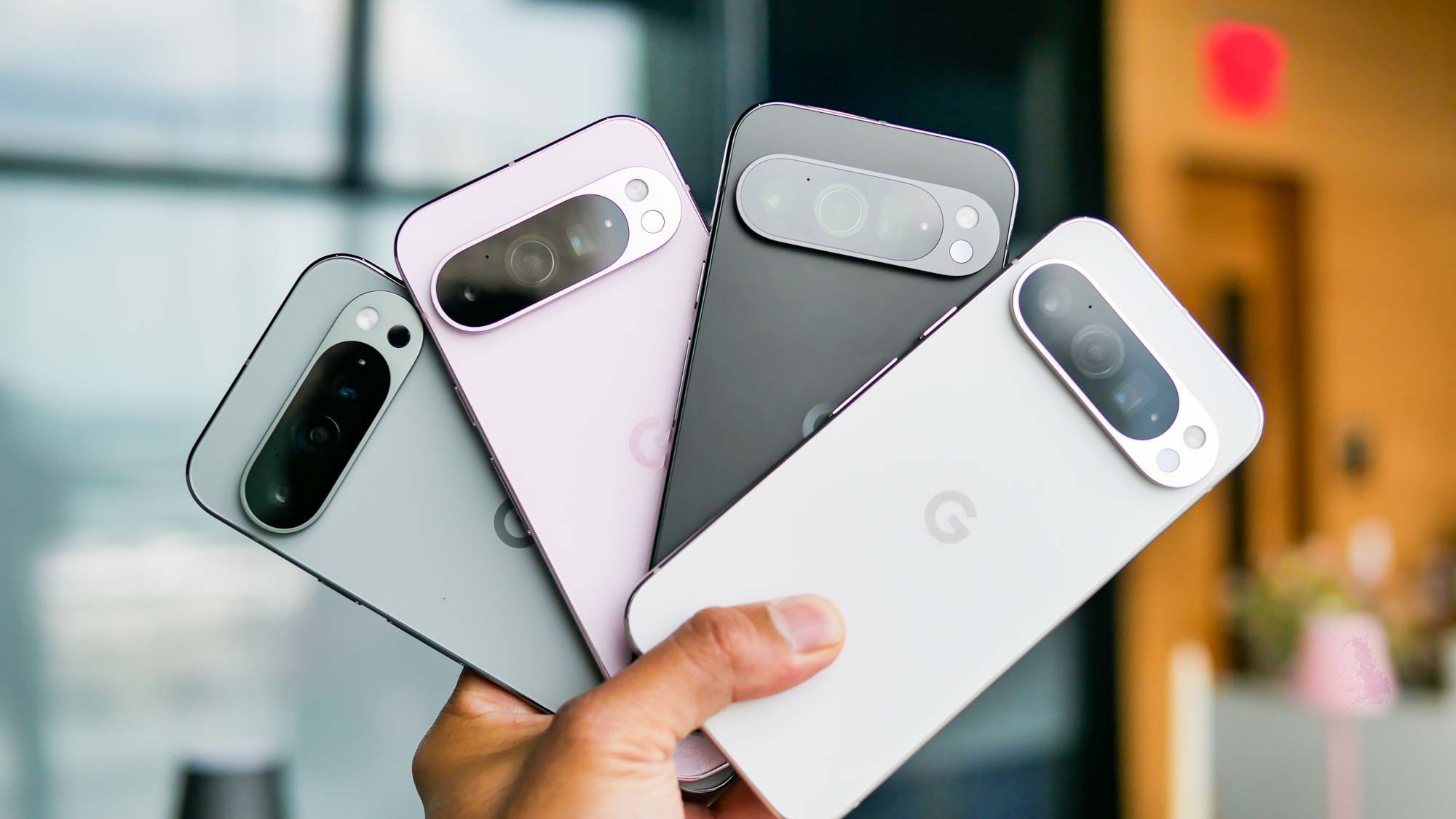
There are a lot more similarities between the Pixel 9 and Pixel 9 Pro than there used to be, but key differences remain even if the screen sizes are identical. You get a better display with the Pixel 9 Pro, along with a dedicated telephoto lens and faster wireless charging with Google's accessories. The year subscription to Gemini Advanced is also appealing, especially if you're wowed by the Pixel's AI features
Are those enough to justify the Pixel 9 Pro's $200 premium over the $799 Pixel 9? Maybe, maybe not. it'll all come down to your personal preference If you want the best of the best, but are happy having the smaller screen size, then the Pixel 9 Pro might be for you. Especially if you want the optical zooming power of the telephoto lens.
But the Pixel 9 is still an excellent phone, and its limitations are pretty meager in comparison to its Pro sibling. In fact Tom's Guide Phones Editor John Velasco feels that the Pro models are overrated — so don't be put off by the lack of certain hardware features.
More from Tom's Guide
Sign up to get the BEST of Tom's Guide direct to your inbox.
Get instant access to breaking news, the hottest reviews, great deals and helpful tips.
Philip Michaels is a Managing Editor at Tom's Guide. He's been covering personal technology since 1999 and was in the building when Steve Jobs showed off the iPhone for the first time. He's been evaluating smartphones since that first iPhone debuted in 2007, and he's been following phone carriers and smartphone plans since 2015. He has strong opinions about Apple, the Oakland Athletics, old movies and proper butchery techniques. Follow him at @PhilipMichaels.
-
Davidj22 If they do copy iPhone with the sharp, flat, cold metal edges I'll switch to another brand. Have used Pixels since the 3.Reply

